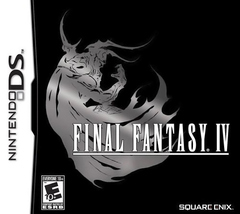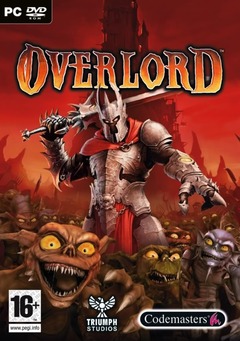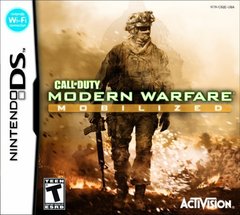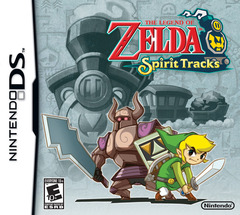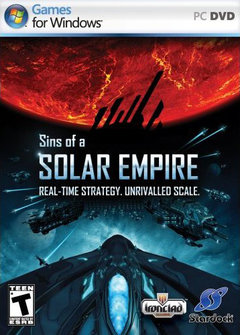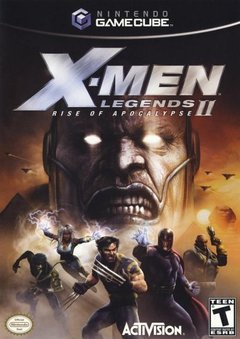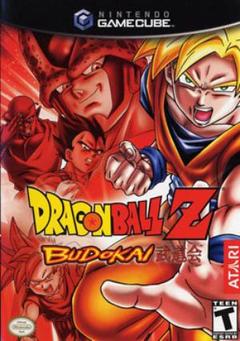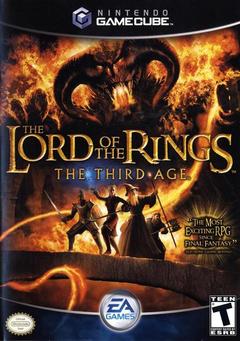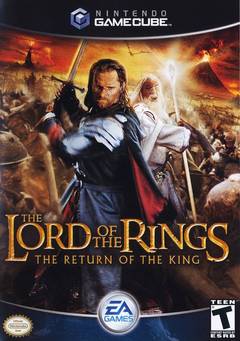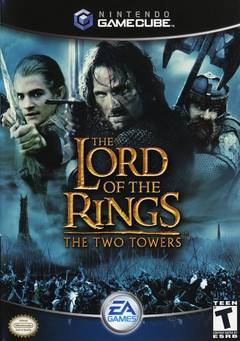Paul Eastwood's reviews and writings
Final Fantasy IV
Square's Final Fantasy IV was originally released in Japan on the Super Famicom in 1991 and was localized in the US as Final Fantasy II, since the previous two games weren't released in America.
Final Fantasy IV changed the face of RPGs and set the standard for the name final Fantasy for years to come. The storytelling was unparalleled in video games and the amount of detail lavished on the game was staggering.
For the 20th anniversary of the Final Fantasy series, Square-Enix remade FFIV in full 3D and released it on the DS in 2008, this time with the proper number in the title.
I've never played the original Super NES version, so this will be my first encounter with Final Fantasy IV. Can it hold up in this day and age?
Note: I considered reviewing this as a Half-Hour Handheld, but since it was originally released as a console game, I will go ahead and play it for the full hour.
Overlord
Overlord is a third-person action-adventure/RTS published by Codemasters. It takes the idea laid down by Pikmin and Battalion Wars and brings them to their evil conclusion.
The concept is that you are an evil Overlord, with minions to do your dirty work. Will we have a good time playing as the bad guy, or is there a good reason most games have you control the hero?
Call of Duty: Modern Warfare: Mobilized
Call of Duty 4: Modern Warfare was a huge hit, and Modern Warfare 2 was a huger hit. Activision expected that, and decided this wasn't a chance they could pass up. At the same time MW2 was released, the original Modern Warfare was remade for the Wii, and Modern Warfare: Mobilized was set loose on the DS.
This handheld FPS mimics the control scheme of Metroid Prime Hunters, using the stylus to aim and the buttons to move and shoot. This worked out pretty well for the DS entry in the Metroid series.
Modern Warfare and its sequel both have amazing, hi-definition graphics. But how does a studio go about shoehorning that into a system that hosts mostly 2D games? Will the controls work? Will Modern Warfare be the least bit exciting on a handheld?
A word about Half-Hour Handhelds. We review games based on their first hour and whether it's worth it to continue playing. However, handhelds games are generally designed to be played in short bursts. They usually have shorter levels, less overall content (leading to a shorter game length), and less lengthy exposition. Because of this, an hour would be a really long time to play a handheld game for a first impression. It would likely delve into a larger percentage of the overall game and it would not be consistent with how handheld games are usually played. Plus it would be uncomfortable. All that being said, I think half-an-hour is a generous amount of time to allow for a first impression. If I've played a DS game for half an hour and it's not fun yet, there's no way I'm going to give it another 30 minutes.
The Legend of Zelda: Spirit Tracks
The Legend of Zelda is an old and respected series of games. The brainchild of Nintendo's Shigeru Miyamoto, the series contains some of the best-loved games ever.
When a series continues this long, there's always a risk: either the games stay the same and get stale, or they innovate and don't fit in the series.
December 7 ushered in the latest iteration of the green-clad hero on the DS. Spirit Tracks is a direct sequel to Phantom Hourglass, which itself was a direct sequel to Wind Waker, making this the longest string of direct sequels for the franchise.
Set about 100 years after Phantom Hourglass, it features the descendants of the previous Link and Zelda. But what we want to know, is this game any good? Is it the same as Phantom Hourglass, but with a train instead of a steamship? Is driving a train any fun? What will the first hour of the latest Zelda game be like?
Sins of a Solar Empire
For those out of the know, Sins of a Solar Empire ("Sins" for short) is a space-based real-time 4X (eXplore, eXpand, eXploit, eXterminate) game. Imagine Civilization except in real-time and with giant spaceships blowing each other out of the sky, and you've more or less got it. It was developed by Ironclad, a Canadian developer known for producing expansions to Homeworld. It didn't get much recognition because of the little-known dev, but it turned out to be a great game with an epic scale and astoundingly deep gameplay.
The game is one thing, but the soundtrack is another. The Collector's Edition of Sins of a Solar Empire comes with a soundtrack CD (among other things). The disc features 23 tracks by Paul Schuegraf, a Canadian musician known for, well, the score of Sins of a Solar Empire.
X-Men Legends II: Rise of Apocalypse
X-Men Legends II: Rise of Apocalypse is an action RPG featuring the X-Men and Brotherhood of Mutants teaming up to fight Apocalypse. Developed by Raven Soft and published by Activision, it's (obviously) the sequel to X-Men Legends.
I have never played X-Men Legends. Why, then, am I playing the sequel? In the first game, you play as the X-Men fighting against the Brotherhood. In the second, you play as the X-Men and the Brotherhood, which seemed much more interesting to me.
How will this game capitalize on this unique license? Will an action RPG be fitting for the X-Men (and Brotherhood)? Did I make a huge mistake in playing the sequel before the first?
Dragon Ball Z: Budokai
Everyone should have heard of Dragon Ball Z, the famous anime based on the manga by Akira Toriyama. It's the second part of the series (preceded by Dragon Ball), and the most famous. It follows the adult life of Goku as he grows more powerful and gets in fights with aliens.
Dragon Ball Z has such loyal fans that any game with the Dragon Ball Z moniker automatically sells well, no matter how bad. This is what licensed games are all about: making money on the strength of the brand instead of the strength of the game.
Then along came Dragon Ball Z: Budokai (which basically means "tournament") for the Playstation 2. It sold exceptionally well, even for DBZ, so Atari decided to update the graphics and release it on the Nintendo GameCube, where it went on to sell over a million copies and become Player's Choice.
The GameCube version is the preferred release, as the developer Dimps took the opportunity to implement cel-shading, making the game look more like the anime than the Playstation 2 version. I will be playing the GameCube version.
What I want to know is this: is this game worthy of its Player's Choice status, or did DBZ just have a million fans ready to pay for anything with Goku on the front? Will this game be fun for those without prior knowledge of the story, or will you have to be a devoted fan to get anything out of it?
The Lord of the Rings: The Third Age
And so we've come the the last game in the Lord of the Rings marathon. The good thing about this marathon is that it was much shorter than a Lord of the Rings movie marathon. Actually, beating all three games would probably take less time than watching the extended versions of the movies. Snarkiness aside, it would be a good idea to read the first two before venturing into this one.
After Return of the King was released, there was still enough hype about the Lord of the Rings movies to warrant releasing another game. Since the two previous games had already covered all the battles from the movies (and then some), EA decided to tap into a previously neglected genre: they released an RPG.
The Lord of the Rings: The Third Age is almost a JRPG, except it wasn't developed in Japan. Because of this, it has a little more Western influence on the storytelling and some of the gameplay.
The story was created just for the game and has you controlling new characters, mainly Berethor, a man of Gondor, who is searching for Boromir.
Will Lord of the Rings make a good RPG? Perhaps the bigger question is, will EA make a good RPG? Hmmm....
The Lord of the Rings: The Return of the King
The second game in my marathon is The Lord of the Rings: The Return of the King. To simplify, I will assume you have already read my Two Towers review, so if you haven't you may want to do that first.
Return of the King (RotK) is the follow-up to The Two Towers. This game was released in conjunction with the movie, so it follows it much more closely. The levels are taken only from the final movie (which doesn't always correspond to the final book).
In order to one-up the previous game, RotK raises the number of playable characters from three to five right off the bat, with several unlockable characters as well. It also adds interaction within the environment, two-player co-op, and a bunch of tweaks such as graphical enhancements.
Will these changes be enough to help Return of the King surpass The Two Towers? Will its First Hour be as well paced as its predecessor? Or will neither of these things happen?
The Lord of the Rings: The Two Towers
This is the start of a marathon of Lord of the Rings gaming, in which I play the first hour of three games based on the Lord of the Rings movies. Strangely enough the three games are not one for each movie; there was in fact no game made for the Fellowship of the Ring movie. Instead, I'll be playing Lord of the Rings: The Third Age as the third game.
The Lord of the Rings is one of the most beloved series of books ever written, and the movies based on them are some of the best-selling of all time. What I want to find out is if the IP was able to make the jump to video games with the same fidelity.
I read these books some years back, before the movies came out, and they are some of my favorite books. Because of this, I may throw around a few terms that are unfamiliar if you have not read the books or watched the movies. If this is the case I strongly urge you to read the books.
Electronic Arts had the video game rights to the Lord of the Rings films (Sierra had the rights to the books; I'm not really sure how that works), but since the first film came out around the time the console cycle entered the next generation, EA decided to skip Fellowship of the Ring and instead focus on releasing a game that coincided with the premier of The Two Towers. Because of this, the game starts with several scenes from The Fellowship of the Ring.
Which stigma will this game live up to: Lord of the Rings, or movie game? Find out. Here's the first hour of The Lord of the Ring: The Two Towers for the Nintendo GameCube.

